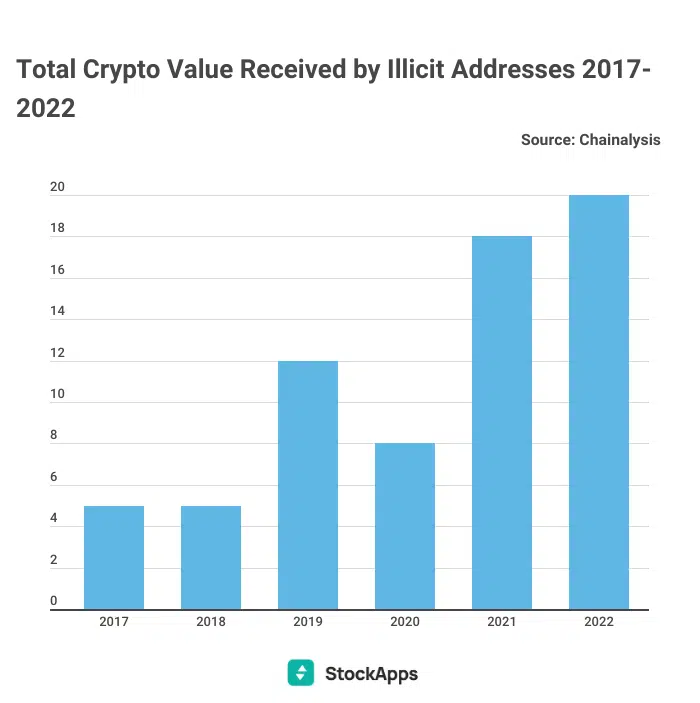No products in the cart.
- Latest
- Trending
ADVERTISEMENT
data from stock app shows that 44% of illegal cryptocurrency transactions in 2022 will come from regulated organizations.
Some look to cryptocurrencies as an opportunistic investment strategy, while others shy away from the level of risk and volatility associated with the industry. However, more and more people are seeing cryptocurrencies as a way to get around government sanctions.
Governments impose sanctions to punish misbehaving entities. For example, the United States imposes sanctions on Iran, North Korea, and Russia. These sanctions prevent financial institutions from doing business with entities in these countries.
hydrais a Russian dark web marketplace where criminals can buy and sell items and services, and is one of the sanctioned companies.Other sources include Blender.io Tumbler and the North Korean hacking group Lazarus.
However, cryptocurrencies are not subject to these same restrictions and can be used to send and receive money from anyone in the world. Become. StockApps analysis reveals reality.
Among the various methods used to overcome sanctions, decentralized exchanges remain highly lucrative. This is because such exchanges exist beyond the regulations imposed on traditional financial institutions. This means that transactions with sanctioned countries remain unaffected.
Additionally, peer-to-peer networks make it easier for rogue traders to rely on cryptocurrencies. These networks allow users to send and receive payments without revealing their identity.
As the data shows, these types of transactions have increased in both value and volume over the past five years.

Despite recent efforts by regulators, cryptocurrencies are still largely unregulated, and some bad actors are taking advantage of investors, creating millions of losses in the process.
StockApps reinforces the need for new regulation in the cryptocurrency industry. Specifically, it aims to protect investors and expel illegal trading in licensed entities.
As such, cryptocurrency exchanges must enforce Know Your Customer (KYC) and Anti-Money Laundering (AML) compliance.
When it comes to data, StockApps financial analysts Edith readingSanctioned entities are increasingly using crypto to cover their tracks and avoid crimes that were not possible in the traditional financial system. We must act quickly to do so.
Copyright © Pbird Media | Copyright © All rights reserved 2024

Copyright © Pbird Media | Copyright © All rights reserved 2024











